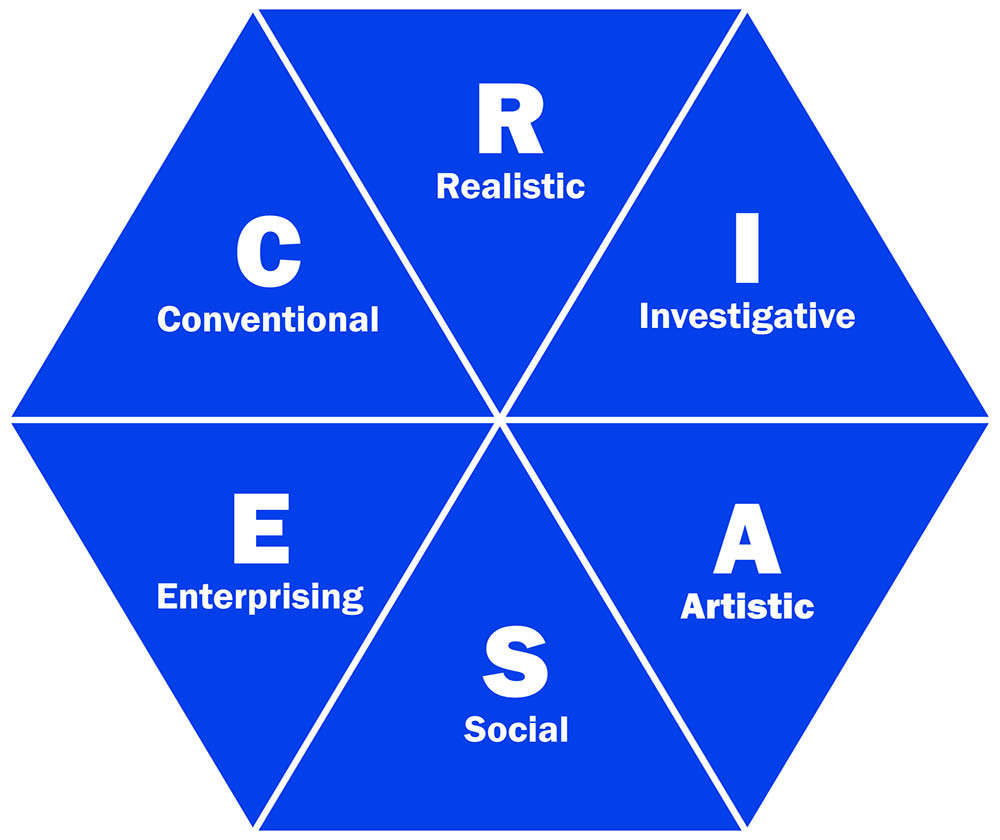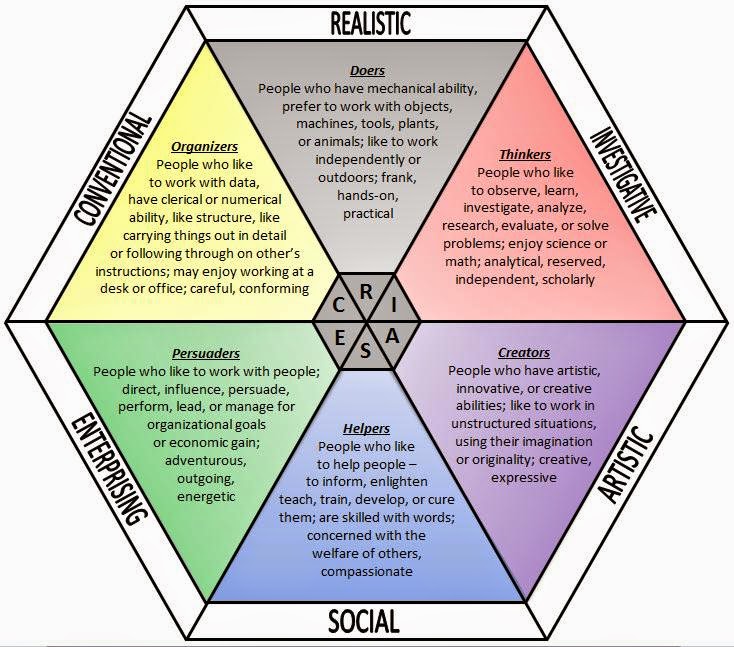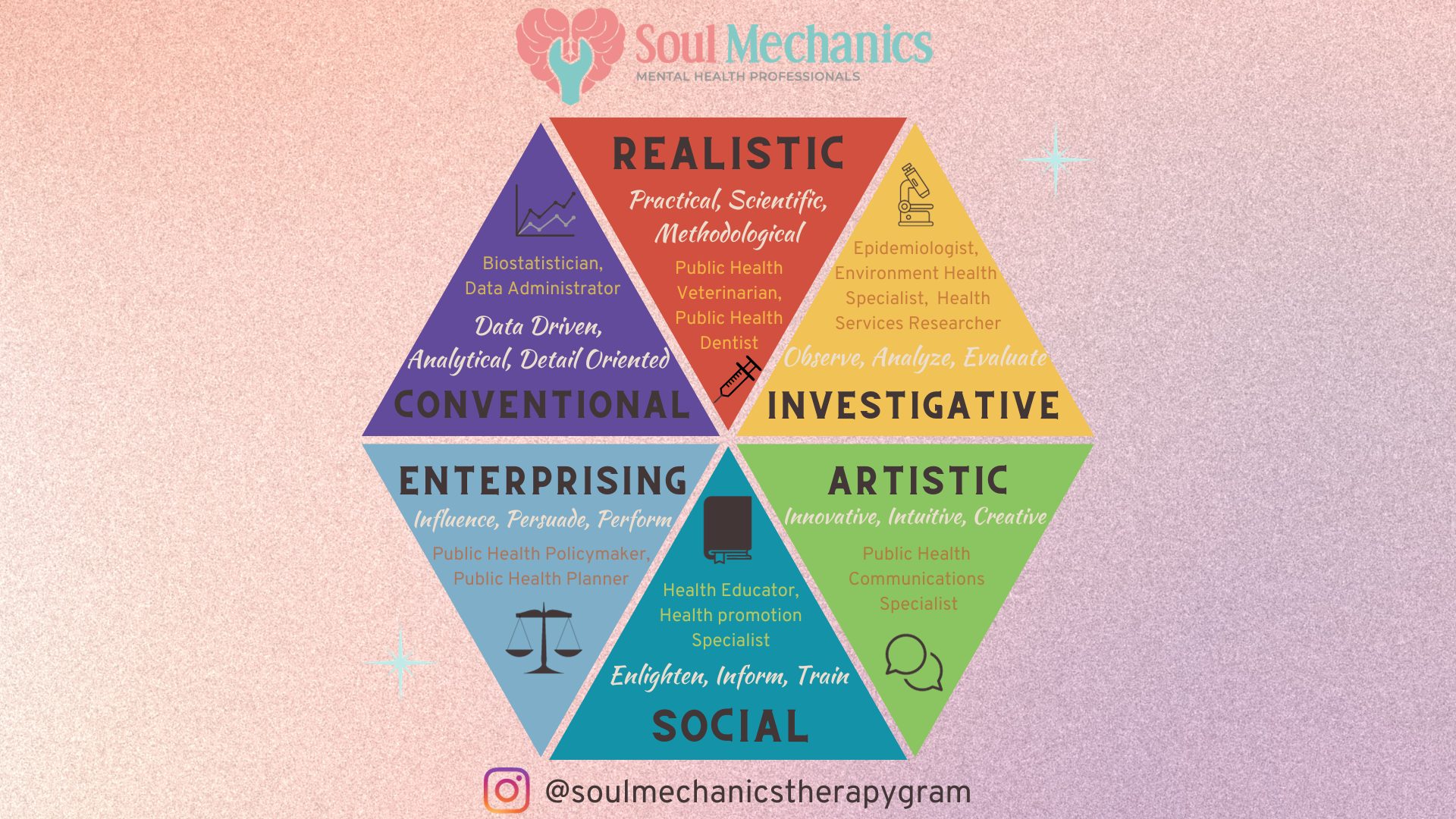Career TestHolland Theory of Vocational Types
Career TestHolland Theory of Vocational Types
Career is an extremely hot topic that all of us have talked about since our childhood. Our dreams or goals in terms of career, have certainly evolved over time as we age. Often times it is at this point where most of us feel stuck and confused. We can never deny that media does play a significant role in influencing our choices. An appropriate example will be when someone we idolize online comes from a certain career path. But have we ever asked ourselves or even wondered what we truly want to be? Which career best suits our interests and personality?
What is the Holland Code of Career Test?
Such questions may often be daunting without a guide. However, several career tests have been developed by many psychologists that can guide us towards our preferred career choice. The "Holland Code of Career Test", is a widely used test developed by a vocational counsellor, John L. Holland. It was only through his "Theory of Vocational Types", that we were able to discover that every individual will possess a trait that corresponds to at least one of the six vocational personality types.
R - Realistic
I - Investigative
A - Artistic
S - Social
E - Enterprising
C - Conventional
He has established that if the individual chooses a career corresponding to one of these types, they would be satisfied. Moreover, one's preferred working environment can also be classified through the six vocational personalities. This is simply because we often feel comfortable working in settings that allow us to convey our interests, values, skills and attitudes.
Holland's vocational personality is also known as "pure types" and is often demonstrated through a hexagonal model. The closer each type is to one another, the more familiar the characteristics are. The furthest apart types in the hexagon have the least familiar characteristics. The diagram below represents the Holland Vocational Personality Types and the Holland Hexagonal Model. The descriptions of each vocational personality might not precisely describe one's personality; however, one's personality will more likely be merged with several types to different degrees. We can utilize the "Holland Code of Career Test" to determine our three most dominant vocational personalities with the scores obtained for each personality.

1.0 Realistic
Individuals who are inclined towards realistic traits often prefer to work with objects. In other words, they prefer career pathways that are more hands-on work compared to ideas and people. Individuals with realistic characteristics enjoy learning practically by doing something in a work-oriented setting rather than being in a time-consuming educational or similar environment. Individuals with these characteristics tend to be more direct when communicating and they give value to material things. Due to their nature of familiarity with physical and mechanical activities, they may feel less comfortable when it comes to socializing. Realistic individuals usually prefer career pathways such as mechanic, architect, electrician, farmer and similar jobs that are more hands-on.
2.0 Investigative
Individuals who are more inclined towards investigative traits prefer to work in a career pathway that needs them to be analytical, observant, and intellectual. These individuals enjoy activities that consist of research, mathematics, or other scientific components. They also usually don't prefer repetitive activities and career pathways that require persuasion. An investigative individual is drawn to challenges and enjoys solving abstract and complex issues using their intellect and logic. Thus, they prefer working independently, try not to seek leadership positions, and tend to get suffocated in highly structured environments. Investigative individuals usually prefer career pathways like a chemist, geologist, lawyer, physician, computing and other similar career pathways.
3.0 Artistic
Individuals who are more inclined towards artistic traits prefer career pathways that require them to use their intuition and imagination. Artistic dominant individuals seek to express themselves through their creations and like working in environments that foster their creativity. They are also the ones who give value to originality and endless imagination in an unstructured setting. They are mostly shy and introverted individuals who don't talk much; their creation communicates. Artistic individuals are typically emotional and tend to communicate expressively in an open manner, they may express themselves either verbally or through their creations. Therefore, they may experience deficiencies in management skills or office-related work. Artistic individuals usually prefer career pathways like musician, writer, painter, designer, director and other similar career pathways.
4.0 Social
Individuals who are more inclined towards social traits prefer career pathways that require them to help, counsel, train, or heal others. They are generally individuals with high humanitarianism and responsibility toward the welfare of others. In short, they are human relationships-focused individuals who prefer social-related activities and solving interpersonal issues. They possess traits of being persuasive, understanding, generous, and friendly; thus, they generally like working as a team and solving issues through discussions by making use of their interpersonal skills. Individuals with social traits, enjoy working in an environment that allows them to interact with others. Similar to individuals with artistic traits, individuals with social traits do not prefer systematic and planned activities. Social individuals prefer career pathways like counselor, teacher, social worker, nurse, and other similar career pathways.
5.0 Enterprising
Individuals who are more inclined towards enterprising traits prefer career pathways that require them to take up leadership roles or persuade others for their economic or organizational benefit. Since they are generally great speakers, they can be good with their words and are sociable. Individuals with enterprising traits may be viewed as assertive or arrogant. They are energetic, confident, and ambitious. Individuals with enterprising traits often prefer working in a setting that motivates them to indulge in works that broaden and sharpen their persuasive and leadership skills. They also prefer a career pathway that rewards them through the gain of power, money, and status.They usually don't prefer to work in a setting that requires them to be observational and systematic, and they also may encounter deficiencies in scientific skills. Individuals with enterprising traits usually prefer career pathways such as salespersons, business executives, managers, producers, or purchase specialists.
6.0 Conventional
Individuals with conventional traits often enjoy career pathways that require them to be systematic, formulate data accurately, and have concrete planning. Conventional dominant individuals often possess the ability to organize planners, maintain and modify data and handle office stuff. They are efficient and organized individuals who achieve financial or organizational requirements primarily through organizing data in numeric and text form following the given plans. Individuals with conventional trait also prefer working under the command of their higher officials and often feels comfortable with executing the instructions given. Therefore, they usually do not prefer jobs that are not systematic which might cause them to have an artistic deficiency. Individuals with conventional traits often prefer career pathways such as accountancy, financial analysis, secretary, banking, tax consultant and similar career pathways.

Conclusion
Career development is a long process that requires a tremendous amount of patience and effort. Sometimes, we may need to explore a few career pathways before discovering the right career pathway that gives us both financial growth and a sense of fulfilment. In times of confusion, we can utilize the Holland Code of Career Test to help us further narrow down our career choices.
At the end of the day, it is completely fine for us to not find the right career pathway on our first try. What matters is that we don't give up and keep trying until we find the right career pathway that completes us.
Selecting a career requires a certain degree of self-awareness,
To learn more about how therapy helps raise self-awareness, click here.
For more content related to mental health do follow us on our official Instagram.

